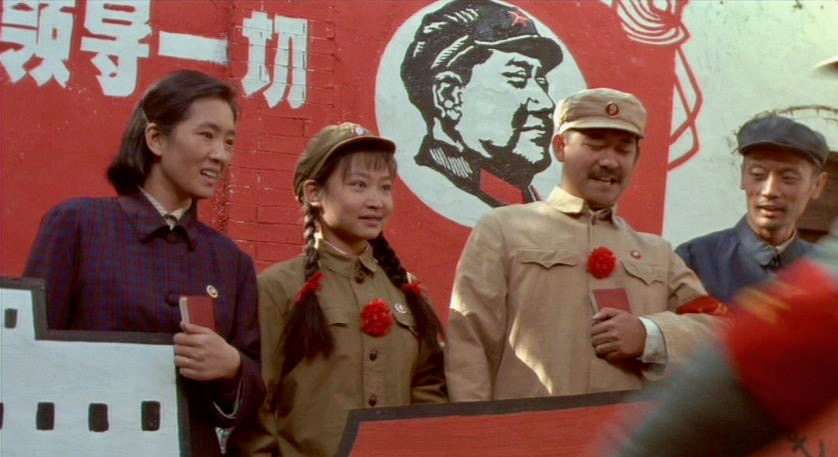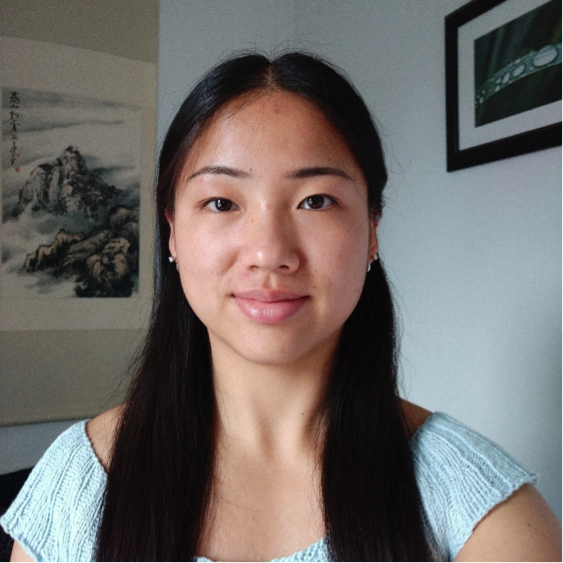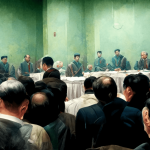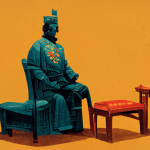1. Introduction
This paper approaches political language as a research topic rather than as a research method. As such, while the topic is the bifurcation outlined by Perry Link (2013) between the official language and ordinary language that was practiced under the Mao era, the research method for this term paper is discourse analysis that will examine the depicted practices of language bifurcation in Zhang Yimou’s film adaptation To Live (1994), based on the novel written by Yu Hua with the same title. This forms the basis for a discussion on the exerted power and possible impacts of the depicted official language. By giving the watchers an intimate glimpse at the lives of the fictional Xu family through the decades of 1940s to 1970s in China, To Live has been a hit with World and Asian history classes at the secondary and undergraduate levels since its release, offering an enrichment for lessons on China’s turbulent years (Loveall, 2003, p. 70). Given its recognition, using To Live as the primary source for this discourse analysis allows me to make appropriate visual references to the language bifurcation and its ensuing practices under the Mao era. Therefore, the research question is:
How does Zhang Yimou’s film, To Live depict the practices of bifurcation between Mao’s official language and the characters’ ordinary language, and how does this reflect the exerted power and possible impacts of the depicted official language?
One may question the relevance of studying such a unique case of political language as Mao’s official language. I follow the logic by Sujian Guo (2013) who states that a good macro-analytical model should provide a conceptual and theoretical framework for defining the starting point (where China comes from), and reflect and assess its changes and continuities to determine the current point where China is now (p. 23). In accordance with this, this term paper focuses on the starting point of China’s language bifurcation that led to a language game which has never entirely disappeared but remained important, especially on politically sensitive topics, well into the 21st century (Link, 2013, p. 279). Due to its limited scope, this term paper will not consider the current point of China’s official language. However, it is worth to note that China’s official language has remained largely in intact its distinctive diction, grammar, and aura, and continued to occupy a special plane within Chinese language use (p. 237). On that note, this term paper may contextualize the importance (or the symbolic value) of Mao’s Thought that still lives today despite the overshadowing Xi Jinping Thought on Socialism with Chinese Characteristics for a New Era. My hypothesis for the research question proposes, despite contrary assertion about the film (Huang, 2008), that To Live depicts the practices of bifurcation through a rather humane and pragmatic than political lens. From a third-person narration, we follow the main character, Fugui, and the other characters’ adaptability and conformity to the changing socio-political conditions. This depiction reflects that the exerted power of official language indeed has great impacts on the practicalities of everyday life. Yet, it also underscores the uniqueness of the individual – an underlying and inevitable component of the language game that ultimately denies the state’s attempt to exert power over one’s personal beliefs.
2. Method, Limitation and Delimitation
Discourse analysis interrogates the data with the aim of showing exactly how the discourse in question can be recognized through the particular data studied and reveal the cultural assumptions that need to be considered in order to understand the data in its entirety. One should look at what is contained and explicit, and also consider what is absent from and implied in the data (Denscombe, 2017, p. 317). To do this, one need to use existing knowledge about society, culture, and politics and incorporate more general background knowledge to decipher the significance of the message contained in the data (p. 318).
One limitation of this method is that it is not easy to verify its analytical findings as it places particularly heavy reliance on the researcher’s insights and intuition for interpreting the data (Denscombe, 2017, p. 318). A way to confront this limitation is to be clear about which aspects of discourse are being studied and which aspects of deconstruction are best applied (p. 318). Accordingly, considering the research question, I will study the discourse of language bifurcation and deconstruct the data by looking at: how power is exerted in the film; what version of things is portrayed as normative, and; whose version of reality is portrayed.
It is worth to note that this term paper is not an assessment of the historical nor linguistic accuracy of the film’s language use and depiction of Mao’s official language. One may presume that the film’s language use inevitably deviates from the realities of the 1940s to 1970s to a certain extent considering the highly transformative stages initiated in the 1950s when the government put high efforts to standardize the Chinese language (Link, 2013, p. 243). Hence, to make an account for whether the language use in the film deliberately attempts to adapt to the developing language use of the 1940s to 1970s, or if it reflects the language use of 1993 when it was under production – and in that case, to what extent this was attempted and done accurately – is something beyond the aim and scope of this term paper.
3. Theoretical Context and Concepts
3.1 The Language Bifurcation
The bifurcation between official language and ordinary language in China grew much sharper and more pervasive than it had ever been before during the Mao era between late 1950s to the early 1970s (Link, 2013, p. 235). Not only was the gap between official language and daily-life reality suddenly much larger than before, but the practices of language bifurcation extended beyond the officials and over to nearly everyone in society, in which the penalties for missteps of appropriate language use were more severe than they had ever been (p. 235).
Consequently, a second order of reality manifested an image of “the official versions of things” that seemed to take on a life of its own whenever topics with political implication were being discussed (Link, 2013, p. 278). This was evident during the Cultural Revolution when people vigorously practiced Mao’s official language even as their interpretations of what that language meant diverged (Ji, 2004, p. 150). Thus, the need for skill in language manipulation became even more critical as the “incorrect” words could confirm that your politics were wrong and confirm the original chargers against you (Link, 2013, p. 236).
3.2 Formalized Language as a Form of Power
As Michael Schoenhals (1992) describes, the PRC has attempted to make the language of the state as the sole legitimate medium of political expression through centralized management and manipulation of what they render as appropriate and inappropriate “formulations” (tifa 提法) – effectively making language formalization a form of power by giving the state direct control over political discourse (p. 3).
True for both Maoist and contemporary times, this form of power is for the already powerful; only a few CCP leaders are able to manipulate rather than be manipulated by these formulations (Schoenhals, 1992, p. 22); making them the ones in power to establish the rules of the language game situated between the officials and the ordinary people. By manipulating the form rather than the content of discourse, formalized language is a powerful way to achieve far more with far less; it limits the ways of expression and conditions whereby only by replicating or mimicking the formalized language can critics of the state be heard (p. 21).
3.3 The Official Language
Official language may be understood as one mode of speaking and the counterpart of ordinary language. Officials use more official language than ordinary people, but this is only a matter of degree; the two modes of official and ordinary language can be interlarded (Link, 2013, p. 242).
Given that the film mainly depicts the practical aspects of language bifurcation, it falls short in depicting the official language and its characteristics verbatim. Thus, the film demonstrates indirectly the power of formalized language that allows brutish power to stand behind it and force their acceptance (p. 275). Formalized official language also possesses intrinsic power that cut off alternative ways of thinking and the very potential for (free) communication (p. 276). The more intensely the official language focused on telling people what to do, the more structurally rigid it became (p. 263). The “correctness” of a set phrase inhered very much in its form, not just its content (p. 264). Ironically, the focus on form rendered its content with abstractions, decentered meanings, and special metaphors (p. 255) that tended to stress goals without specifying how to achieve them (p. 270) – creating leeway for diverging interpretations and maneuverings of the official language.
With that said, instead of further elaboration on the rhetoric and characteristics of Mao’s official language, the focus will lie on its power through the practices of language bifurcation and the language game.
3.4 The Language Game
Language game is an analogy for official language use and understood as a rather intellectual game in which there are rules, tactics, goals and skills that can be honed through experience. However, games are normally entered into freely. As for China’s language game during the Mao era, this was not optional. You had to play – if you withdrew into silence, the silence itself was viewed as a political (incorrect) position (Link, 2013, p. 279). Especially after 1957, Chinese people became more and more accustomed to constructing their public assertions, making some people very good at manipulating the official language, and benefited; while others were less talented and could suffer (p. 278).
This language game was not only high-risk, but also interdependent. By sympathizing with a trickster, you would also be seen as a problem. This led to inducing self-censorship that relied less on physical and bureaucratic controls and more on psychological engineering grounded in the principle of fear. At times, especially during the Mao’s campaigns in the 1940s to 1960s, this was an intense and immediate fear as you could be taunted, ostracized, raided at home etc. (Link, 2013, p. 317) if you did not play your words right.
4. Discourse Analysis and Discussion
4.1 Establishing the Language Game
The CCP’s special use of language for political purposes started already in the 1930s, while in the early 1950s, many people were still largely unaware of the language game; slogans like “serve the people” and “oppose corruption” had straightforward meanings (Link, 2013, p. 322). The importance of political language is established in the late 1940s of the film. Fugui returns to his hometown after finishing his coincidental service in the Liberation Army. Then, a new character arrives, who Jiazhen, Fugui’s wife, introduces simply as the town leader, Mr. Niu. Fugui quickly recognizes Mr. Niu as the town’s cadre – one of the highest-level positions to which a villager could ordinarily aspire (Andreas, 2016, p. 25) – and immediately shows his certificate from the Liberation Army to him. Eventually, Mr. Niu speaks of Fugui’s former property that was set on fire by the current landlord – a “classic counterrevolutionary sabotage” as Mr. Niu points out – and further comments “your timber was first class!” Having experienced from the war that it is imperative to make a politically correct stand, Fugui responds and rectifies “that wasn’t our timber, it was counterrevolutionary timber”.
In the late 1950s under the Anti-Rightist Movement and the Great Leap Forward, the language bifurcation became pervasive and began to affect daily life in ways that obliged almost everyone to adjust to “two kinds of truth”. This entailed to learn how, when using the official language, to set aside ordinary norms of truth and falsity and make words “fit” prescriptions of what was “correct” (Link, 2013, p. 322). Expressed in both words and actions, the film underscores the pressure of adjusting to the normative truths set by the official language. In a sequence set in 1958 under the Great Leap Forward, Youqing, Fugui’s young son, causes a commotion in the communal kitchen leading one of those offended to ask whom taught him such behavior, condemning it as a sabotage to the communal kitchen, thus a sabotage of the Great Leap Forward. Now framed as a political crime, Fugui reacts to the situation by yelling at Youqing, demanding him to apologize. As Youqing firmly refuses, Fugui starts hitting him in front of everyone and is eventually stopped by those people around him. Later at home, as Jiazhen berates Fugui for hitting their son, he reasons his action as the normative thing to do to protect their family given that the word “saboteur” was brought up. This sequence shows how Fugui decides to set aside ordinary norms of truth and falsity (knowing that Youqing is not a saboteur and it is wrong to hit a child) to make his action “fit” prescriptions of what is seen as “correct”; that is, to uncompromisingly punish the accused saboteur.
4.2 Turning Into a High-Risk Language Game
During the Cultural Revolution, language formalization was in every respect taken to its extreme (Schoenhals, 1992, p. 19), such as the Four Olds campaign executed and interpreted by the Red Guard who mostly were children of cadres (Ji, 2004, p. 159). People were exposed to a hegemonic official language that discriminated between the revolutionary “red” and the “experts” (p. 174), whereby the latter were deemed as class enemies and had placard hanging from their necks announcing their crimes and often bore marks of torture and maltreatment (p. 164). In consequence, the language game became more high-risk as the language bifurcation intensified to the point where official language was indisputably the endorsed mode of speaking under both formal and informal circumstances.
An example of this is the tragicomic hospital sequence set in the late 1960s when the Xu family along with intermarried Wan Erxi and his comrades visit Fengxia, Fugui’s daughter who is about to give birth. The Xu family expresses worries to Wan Erxi when they realize that the Red Guard has overthrown the older doctors, then insist that having a more experienced doctor present would make them relax. Despite being a leader of the Red Guard himself, Wan Erxi does not hesitate to find a way to sneak in the reactionary-labelled Dr. Wang who has a placard hanging from his neck. Wan Erxi has to put on a Maoist show to the Red Guard doctors to persuade them to let Dr. Wang stay, then explains this situation to Dr. Wang and tries to take off the placard which Dr. Wang insists on wearing for his own safety. This sequence reflects the virtue of language manipulation by Wan Erxi and the secondary reality of “the official versions of things” created by diverging interpretations of the abstractions, decentered meanings, and vague metaphors of the official language.
4.3 Deviation: The Animal-Allegory for a Good Life
Metaphors are human conventions that are sufficiently well established in our minds to condition the way we think (Link, 2013, p. 255). Mao’s official language used animals metaphorically to denigrate one or another kind of human being, making animal terms mean and to be understood as negative (p. 269). Despite this, Fugui uses a hopeful animal-allegory (an extended version of metaphor) at two various times in the film which may indicate Fugui’s beliefs and possible changes to them. The first time the allegory is used is in the 1950s; Fugui insists that the sleeping Youqing goes to school to melt steel since the District Head is making an inspection, arguing that smelting steel is a duty and they cannot be politically backward. While following Youqing to school, Fugui makes an allegory of different-sized animals to describe the developing stages of their family’s prosperity; as the chicken finally grows into an ox, Fugui states that after the ox comes Communism, and life will get better and better. The second time used is in the ending scene years after the hospital incident that caused Fengxia’s death. Fugui uses the allegory to Mantou, his grandson, but hesitates to continue after the ox. By failing to mention Communism, this arguably indicates that Fugui no longer sees Communism as the ultimate way for a better life. Eventually, Jiazhen finishes the allegory by saying “after ox, Mantou will grow up” and Fugui ends the film by adding that “Mantou will ride trains and planes, and life will get better and better”. Thus, one may argue that this confirms that Fugui’s personal beliefs are not internalized by Mao’s official language; denying the very goal of official language: to make (Chinese) Communism be conceived as the greatest.
4.4 A Paradoxical Game of Mutual Manipulation?
How much do patterns of thinking change because of the language game? How much are people’s worldviews affected? Such questions are difficult to quantify and know the answer to, but as Link (2013) points out, what we do know at least, is that the whole system of “thought reform” in China has always assumed that there are effects (p. 291). Based on this discourse analysis, one could argue that this assumed effect is only partly true in the film. There is no doubt that Mao’s official language depicted in the film exerts a pervasive and invasive power that impacts the ordinary people’s daily lives by impelling them to conform with the version of truths created by the state. As seen, Fugui and the other characters show a conscious yet normalized adaptability to the increasingly intensified bifurcation and language game – which is a significant part carrying the story of Fugui and his unwavering will to live.
However, we are able to detect the character’s adaptability, precisely because we also witness explicit actions, attitudes and comments of their own that are undyed by Mao’s red rhetoric. The film’s third-person narration creates an omniscient, “objective” narrative that underscores Zhang Yimou’s aim to tell the story without any ulterior motive of being critical (Gateward, 2001, p. 59) – thus presents a diversity of people’s realities. Nevertheless, against the backdrop of this term paper’s concern about political language, it is clear that there is a bias in the narration whereby (socio-political) history is secondary while the individual and the family are primary (p. 57). This is underscored by how the film depicts the practices of language bifurcation between a generalized version of Mao’s official language and the characters’ personalized ordinary languages. Furthermore, the depiction downplays the central trait of formalization in Mao’s official language, and also dims – very consciously so by Zhang Yimou (p. 58) – the sense of severity linked to the Cultural Revolution. This is done not only through tragicomedy, but also by the absence of any critical remarks toward the dire circumstances that the characters face or the ones accountable for their sufferings.
The film also depicts a pragmatic attitude towards the language bifurcation. Overall, Fugui and the other characters do not oppose to the language game, but simply adapt and play along to achieve what they want – which sometimes could be specific things, such as attaining an experienced doctor, and sometimes more general objectives, such as to continue to live, striving for life to get better and better. By depicting the pragmatic practices of language bifurcation, the film underlines the individual and personal beliefs, thus adds to a paradox to the language game in which the players seem to have cracked the code; they show the ability to distinguish between what is true and what is useful to say, thus both the state and the involuntary players get to manipulate language to get what they want.
This conforms with Link’s (2013) assertion that Chinese people have indeed used adaptation more than resistance in response to their government’s political use of language (p. 321); they have found ways to adjust to the language game, defend themselves within it, and use it to advance their own interests (p. 322). Thus, in regards to the discourse of language bifurcation and political language in general, the film in its entirety reflects a reality in which the ordinary people are victorious in terms of retaining their beliefs by discovering the practice of mutual manipulation of the official language in the involuntary language game; having no other choice but to earnestly learn the rules of the games, once learned, however, they play by the rules in accordance with their own goals and beliefs.
5. Conclusion
The aim of this assignment has been to create an enlightening connection between the film, To Live and the concept of language bifurcation, making this an interesting case to illustrate the power and possible impacts of political language.
In conclusion, this limited term paper and its analytical findings have substantiated my hypothesis by asserting that in exchange for downplaying the severity and criticism of the intense Maoist circumstances, the film depicts the practices of language bifurcation from a humane lens that empower the individual with agency to pursue their personal beliefs and allow for a pragmatic attitude and approach to the imposed language game. As such, although somewhat biased in its narration, the film raises some weaknesses and limitations to the power and impacts of official language.
References
Andreas, J. (2016). Reconfiguring China’s class order after the 1949 Revolution. In Y. Guo, Handbook on class and social stratification in China (pp. 21-43). Cheltenham, UK: Edward Elgar Publishing.
Denscombe, M. (2017). The Good Research Guide for small-scale social research projects. London: Open University Press.
Gateward, F. (2001). Zhang Yimou: Interviews. Mississippi: University Press of Mississippi.
Guo, S. (2013). Chinese Politics and Government Power, Ideology and Organization. London: Routledge.
Guo, Y. (2016). Handbook on class and social stratification in China. Cheltenham, UK: Edward Elgar Publishing.
Huang, C. 黄. (2008). Cong renxing hua dao zhengzhi hua——shi lun zhzngyimou dianying dui yuhua xiaoshuo “huozhe” de ji chu gaibian 从人性化到政治化——试论张艺谋电影对余华小说《活着》的几处改编 [From Humanization To Politicalization——On Several Changes When Zhangyimou Adapted Yuhua’s “Living” For Film”]. Dezhou University, 1.
Ji, F. (2004). Linguistic Engineering: Language and Politics in Mao’s China. Honolulu: University of Hawai’i Press.
Link, P. (2013). An anatomy of Chinese : rhythm, metaphor, politics. Cambridge, Mass: Harvard University Press.
Loveall, K. (2003). To Live. Education About Asia, 70-71. Retrieved from Association for Asian Studies.
Schoenhals, M. (1992). Doing Thing with Words in Chinese Politics: Five Studies. Berkeley: Center for Chinese Studies, Institute of East Asian Studies, University of California.
Zhang, Y. (Director). (1994). Huo Zhe 活着 [To Live] [Motion Picture].





